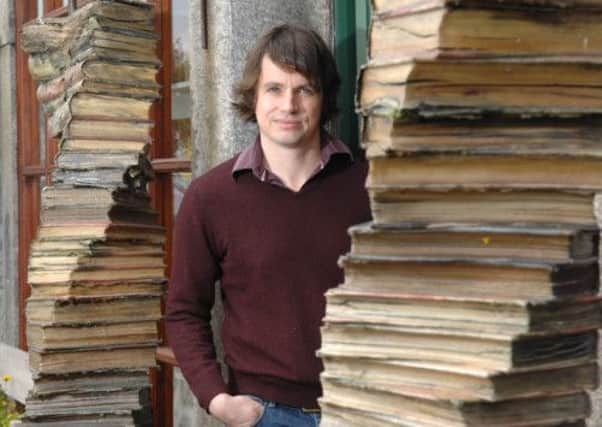Adrian Turpin: Book festivals? More like a circus


Today’s writer must be a performer, at ease with unpicking the contradictions of their work before audiences at book festivals from the Borders to Bombay. For the shy, it must be agony. Why can’t it just be about the words?
The truth is that literary festivals, even the most high-minded, are never just about the book. I’ve lost count of the number of times somebody, when told about my job running the Wigtown Book Festival, has said: “And what do you do the other 11 months of the year?” Oh, this and that, I reply, trying not to throw my glass of wine over them.
Advertisement
Hide AdThe “this” encompasses monitoring reports, meetings with sponsors and partners, funding applications, emails to accountants and trustees – a whole dead forest of forms, fit to fill a library. And the “that”? Oh, yes, I remember, books. Reading them, thinking about them, talking about them. Note to self: don’t forget the books.
Wigtown, as I’ve found over the past five years in the job, is a great place for getting things done. Can-do is the default position. A lot of borrowing goes on. At the moment, we are hunting old washing machine doors to make portholes (for building a time machine: it’s a long story). I’ve also just laid hands on the equipment for doing a drive-in movie – Breakfast at Tiffany’s – in the Galloway Forest Park.
Inevitably, part of the festival organiser’s job – and I’m lucky to have a small but brilliant team to help – is to be the ring-master who pulls the six-ring circus together.
But we’re back to that question again: why can’t it all just be about the words? Do we really have such little faith in literature that we have to dress it up with all these bells and whistles?
It’s a fair question but it’s worth noting that any literary event, however trad, is a bastardisation of sorts. The book is its own medium that, as most literary theorists would agree, speaks independently of its author. If you’re a real purist, you don’t need to see the writer at all.
In other words, the love of spectacle, the thrill of getting up close to an author and imbibing a little bit of their literary celebrity isn’t something that some book festivals have and others don’t: it’s innate to the whole festival idea. It’s just a matter of degree.
Advertisement
Hide AdNor is it first and foremost the job of a book festival to act as a cultural gatekeeper – to keep out all but the most exquisite writing and refined thought at all costs. There are academics to do that and critics. At Wigtown, we love good writing as much as anyone: from Anne Applebaum to James Meek, Artemis Cooper to Robin Robertson, this year’s programme is packed with it.
But respect for these writers’ talents isn’t diminished by the more light-hearted side of the festival. A clifftop walk in the footsteps of The Wicker Man or a supper round the campfire with the wonderfully named Guyrope Gourmet can be inspiring in their own way – just as inspiring as a good book.
Advertisement
Hide AdA good festival creates its own world for its duration, one parallel to the everyday then, like Prospero’s revels fades away, leaving a distinctive glow. I hope that the world we create at Wigtown for ten days every autumn feels just a little bit more friendly, a little bit smarter and a little bit more full of possibility than “real” life. If we manage to do that we’ll have succeeded, even if we haven’t done it all “by the book”.
• Adrian Turpin is director of Wigtown Book Festival which runs from 27 September to 6 October (www.wigtownbookfestival.com).